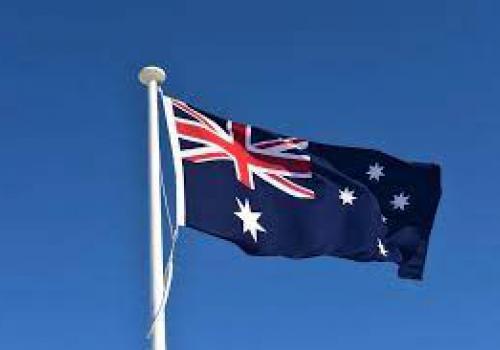Australia’s consumer sentiment tumbled to the lowest level in 2-1/2 years and business confidence also weakened as higher interest rates and surging inflation stoke concern about the nation’s economic outlook. Westpac Banking Corp.’s index of consumer sentiment dropped 6.9% to 78 -- the lowest level since the early pandemic period in April 2020 -- highlighting pessimists greatly outnumber optimists. Shortly after, National Australia Bank Ltd.’s business confidence slid 5 points to 0 while conditions -- measuring hiring, sales and profits -- edged lower. Consumer sentiment and business confidence have diverged for much of this year as households struggled with the Reserve Bank’s rapid policy tightening cycle while firms weathered it better. The RBA pushed the cash rate to 2.85% this month from a record low 0.1% in May. Businesses have shown greater resilience with both hiring and prices holding up, even as confidence has now dropped below its long-run average. “Confidence has been falling for several months as headwinds have weighed on the outlook for the global economy and Australia,” said NAB Chief Economist Alan Oster. The survey “highlights that headwinds are beginning to weigh on businesses’ expectations for the future. We do share these concerns with consumption expected to soften materially in 2023.” Household spending has so far held up reasonably well due to very low unemployment and a pandemic-related build up of household savings. Card spending data from banks show consumption was resilient in October and through the start of November. However, today’s plunge in consumer sentiment augers poorly for spending ahead, with Christmas plans “very subdued this year,” Westpac Chief Economist Bill Evans said.
The “family finances, next 12 months” sub-index recorded a steep 11.2% fall to 81.7, the lowest level since 2014. Confidence in the economy also deteriorated. The “economic outlook, next 12 months” sub-index fell 7% and the “economic outlook, next five years” sub-index was down by 7.3%. The survey of households came after third-quarter inflation jumped more than expected, prompting the central bank to push rates to the highest level since April 2013 and signal further tightening ahead. The government’s budget too contained little for households to help ease rising costs. “We expect spending to slow markedly in 2023, something that is necessary to ensure inflation comes back to the Reserve Bank’s 2-3% target,” Evans said. “If that economic slowdown is sufficient to ‘wring-out’ high inflation and the associated inflationary psychology, then the Reserve Bank will have done its job.” Evans highlighted that “to date, consumer spending has been quite resilient to these recessionary confidence levels.”
